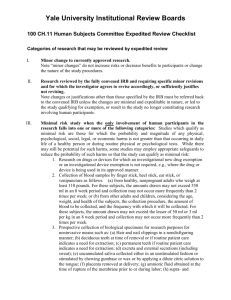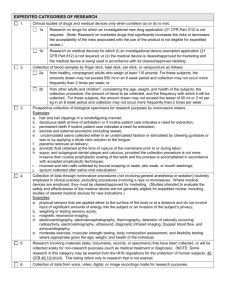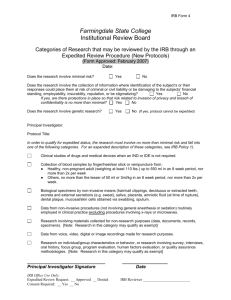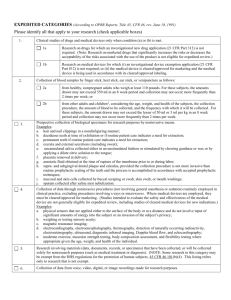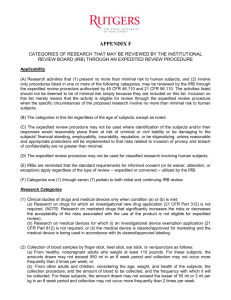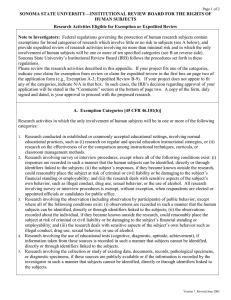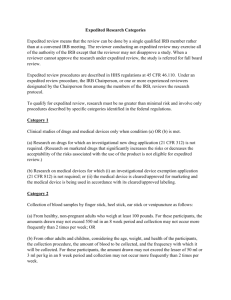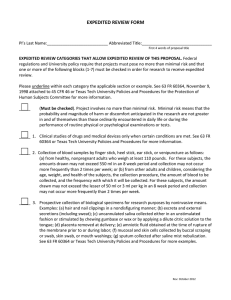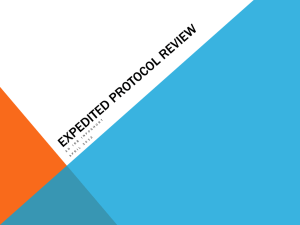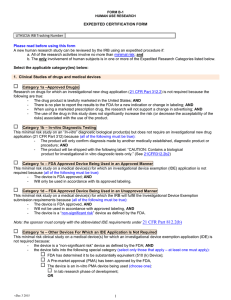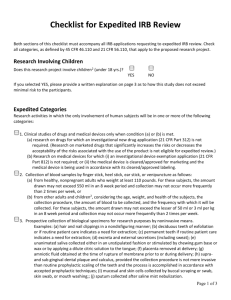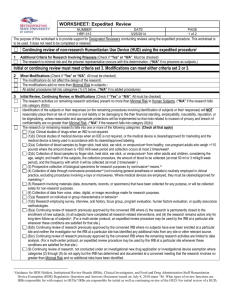EXPEDITED REVIEW CATEGORIES
advertisement
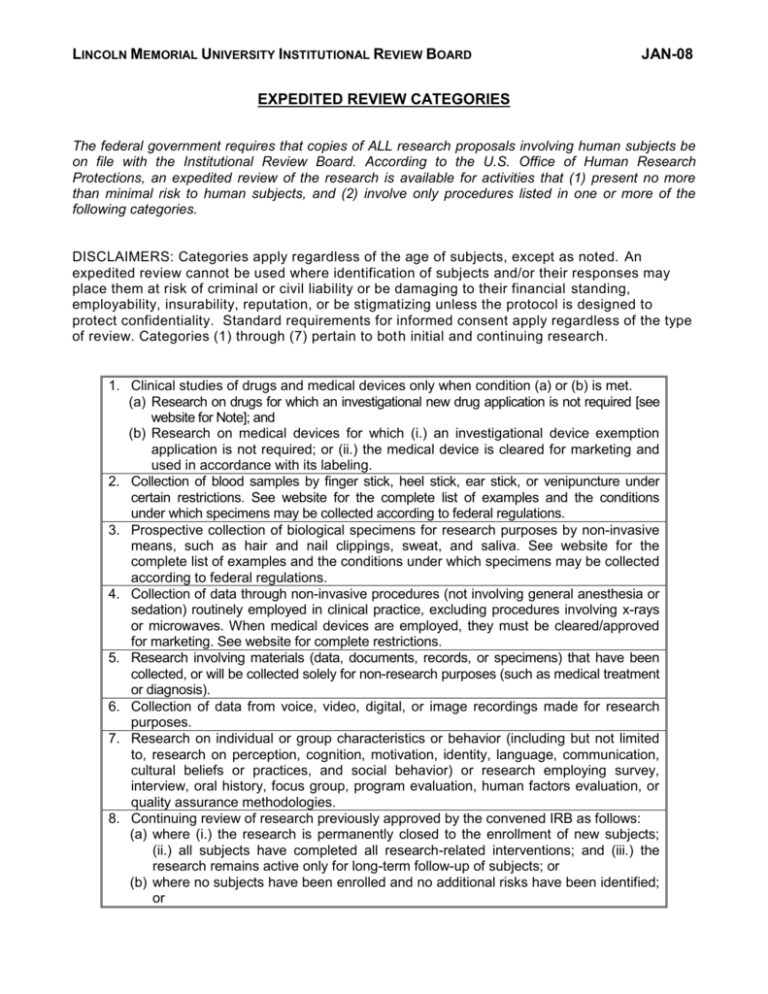
LINCOLN MEMORIAL UNIVERSITY INSTITUTIONAL REVIEW BOARD JAN-08 EXPEDITED REVIEW CATEGORIES The federal government requires that copies of ALL research proposals involving human subjects be on file with the Institutional Review Board. According to the U.S. Office of Human Research Protections, an expedited review of the research is available for activities that (1) present no more than minimal risk to human subjects, and (2) involve only procedures listed in one or more of the following categories. DISCLAIMERS: Categories apply regardless of the age of subjects, except as noted. An expedited review cannot be used where identification of subjects and/or their responses may place them at risk of criminal or civil liability or be damaging to their financial standing, employability, insurability, reputation, or be stigmatizing unless the protocol is designed to protect confidentiality. Standard requirements for informed consent apply regardless of the type of review. Categories (1) through (7) pertain to both initial and continuing research. 1. Clinical studies of drugs and medical devices only when condition (a) or (b) is met. (a) Research on drugs for which an investigational new drug application is not required [see website for Note]; and (b) Research on medical devices for which (i.) an investigational device exemption application is not required; or (ii.) the medical device is cleared for marketing and used in accordance with its labeling. 2. Collection of blood samples by finger stick, heel stick, ear stick, or venipuncture under certain restrictions. See website for the complete list of examples and the conditions under which specimens may be collected according to federal regulations. 3. Prospective collection of biological specimens for research purposes by non-invasive means, such as hair and nail clippings, sweat, and saliva. See website for the complete list of examples and the conditions under which specimens may be collected according to federal regulations. 4. Collection of data through non-invasive procedures (not involving general anesthesia or sedation) routinely employed in clinical practice, excluding procedures involving x-rays or microwaves. When medical devices are employed, they must be cleared/approved for marketing. See website for complete restrictions. 5. Research involving materials (data, documents, records, or specimens) that have been collected, or will be collected solely for non-research purposes (such as medical treatment or diagnosis). 6. Collection of data from voice, video, digital, or image recordings made for research purposes. 7. Research on individual or group characteristics or behavior (including but not limited to, research on perception, cognition, motivation, identity, language, communication, cultural beliefs or practices, and social behavior) or research employing survey, interview, oral history, focus group, program evaluation, human factors evaluation, or quality assurance methodologies. 8. Continuing review of research previously approved by the convened IRB as follows: (a) where (i.) the research is permanently closed to the enrollment of new subjects; (ii.) all subjects have completed all research-related interventions; and (iii.) the research remains active only for long-term follow-up of subjects; or (b) where no subjects have been enrolled and no additional risks have been identified; or (c) where data analysis poses ongoing risk to participants (e.g., privacy or confidentiality issues). 9. Continuing review of research, not conducted under an investigational new drug application or investigational device exemption where categories (2) through (8) do not apply but the IRB has determined and documented at a convened meeting that the research involves no greater than minimal risk and no additional risks have been identified.
